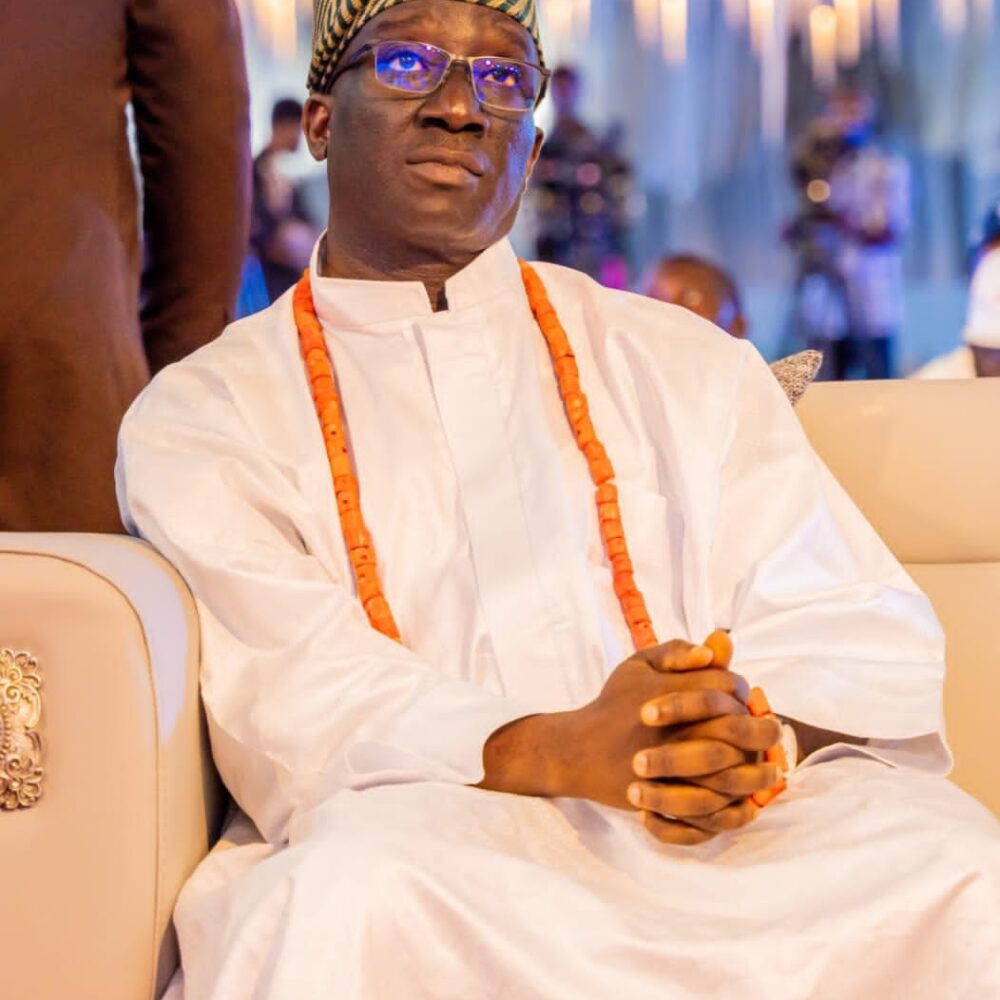A thought-provoking piece is going round on WhatsApp. Credited to Professor Hamman Tukur Sa’ad, it concerns the current Academic Staff Union of Universities (ASUU) strike and the tertiary education crisis in Nigeria. The author not only accuses ASUU leadership and those who manage education in Nigeria of lacking critical thinking, but also indicts them for sundry acts of financial impropriety and gross incompetence. In these days of fake news, I had to scout around for the professor’s contact to be sure he wrote the piece.
Vice Chancellor of the Federal University of Technology, Minna between 2002 and 2007 and Chairman of the Federal Government Visitation Panel on the 2020 crisis at the University of Lagos, Sa’ad is a prominent national figure. Apparently, the professor belongs to an online chat group where prominent academics daily agonise over the problem of tertiary education in Nigeria. Not only did he confirm his authorship, Sa’ad forwarded to me other more critical interventions he has made on the issue. And they are not the usual lamentations. They go to the root of the crisis, offering suggestions on the way forward. Today, I want to publish a few excerpts from Prof Sa’ad before I proffer my own comments on the issue.
*REMUNERATIONS*
The salaries paid to lecturers are ridiculously low by all standards, but ASUU can be blamed for that too. Universities have their autonomy and statutes as well as governing councils that can introduce charges to augment whatever pittance government pays. But ASUU is vehemently opposed to charges, even when the federal government promised to reintroduce Education Bank from where students could borrow funds and pay later. This is what happens in some countries, including the richest country in the World, USA. With charges, it will be possible to pay a professor in a high-profile discipline up to N3 million per month and get him to render good services. What happens now is that some lecturers are servicing three to four universities to make up. Even when ASUU is on strike, they service private universities so they can afford to stay six months while pretending that they are without salaries. Who is fooling who?
I am opposed to IPPIS on principle. We are not civil servants and cannot be lumped together with government employees. However, most ASUU members are afraid that such a scheme will show their names in a number of federal universities, doing part time teaching, being visiting teachers, or adjunct lecturers. It is unfortunate that students and parents are the ones suffering as a result of these strikes. Government officials and ASUU leadership are shedding crocodile tears over the fate of the students as if they care. It is not enough to call off this strike just in readiness for the next one. This open-close regime must be stopped once and for all. Let universities take their autonomy seriously and councils do the needful, including paying good salaries to lecturers.
*STATE UNIVERSITIES*
ASUU in its greed for check-off money has incorporated state universities into the union. Now they want federal government to fund state universities. Is it that ASUU leaders don’t understand that university education is on the concurrent list? What a crazy country we are running! There are states which have three universities where majority of the structures were built by TETFUND. I was opportune to sit on the council of a state university where more than N1 billion was squandered, and the governor insisted that no more funding to the university until the council was able to recover the looted resources. In the process of investigation, the council realised that the funds were actually monies from federal sources: TETFUND, NEEDS, SEEDS etc. and that state government officials were deeply involved in the looting. Along the line, the governor decided to ignore the council and set up a visitation panel consisting of commissioners, including some that were deep in the rot. The result was that the council was dissolved with ignominy. One of the commissioners was appointed as sole administrator or acting vice chancellor!
*FUNDING ISSUES*
The federal government has consistently goofed in negotiating with ASUU members, especially over allowances. The federal government is not the employer of university staff by law. However, since ministers of education have insisted on acting Big by pretending that they have absolute and direct authority over universities, they will continue to suffer the consequences of their folly. ASUU has sucked them in.
I have spent all my life in the education sector, either as a pupil, student, teacher or a lecturer. The sector functioned better when regions, native authorities, missionaries and private sector handled it. The collapse came when the federal government felt it could handle everything below the sky. Every day, the government opens new universities while they can’t fund the present ones they own. Every sector that the federal government took over, it has managed to destroy. Hospitals, roads, universities, secondary schools, name it.
As rich, powerful and big as the United States is, other than specialist universities like those for the army, navy and airforce, the federal government has only two universities. Howard University that was created when the states and private universities were denying admission to black people. The second one is the District of Columbia University in Washington DC which is in the federal territory. However, US federal government intervenes in education through bursaries, loans and grants to students. Barack Obama just managed to finish the repayment of his university student’s loan when he became American president.
Seeing how the regions and native authorities competed in educating their children during the First Republic, I have no doubt that creating a similar atmosphere would enable us to once again move forward. Take the case of Borno Native Authority that used to send its brilliant pupils to secondary schools and universities in UK on scholarship. People like Babagana Kingibe and many others of that generation were products of such a scheme. Education was a serious business in those days at every level. But with the illusion of oil money, we dumped everything on a dysfunctional government at the centre.
Our parents used to sell goats, cows, groundnuts and whatever they had to send us to Government Secondary Schools in the 1960s. At the university level, state governments gave scholarships, but fees were charged. Uncle Naija moved in with oil money, took over everything and destroyed it. Our universities competed with the best in the world under the old system. But where are we today?
*BACK TO THE BASICS*
In the 1970s when we were at Ahmadu Bello University (ABU), Zaria, we were either on scholarship from our state government in my case N/E or parents paid in the absence of sponsorship. Those who genuinely could not afford the fees were termed indigent students. List of such students was forwarded to federal government for sponsorship. But it was a stigma. Few students would like to be on that list. So, university education was not free as such.
When I was in secondary school at Government College Kaduna, fees were charged, based on perceived income of your father. The highest was £36 per annum. The lowest was £3. Three pounds was the price of two sacks of groundnuts at the harvest time. £33 was the cost of two fully mature bulls if you were a cattle owner. Salary earners’ income was visible, so the charges were easy. Our parents paid according to their abilities. We valued the education we obtained at all levels. The person who claimed that education in Europe is free should contend with Brexit. Britain always charged foreigners while citizens enjoyed the fruit of their parents’ taxes. Some of the Scandinavian countries that are reputed to have free education like Finland also have the highest taxes in the World. So, it is not free per se. Someone is paying for it. Who pays tax in Nigeria? Mostly people in the services and the formal sector. But our informal sector is perhaps larger than the formal sector. It is not taxed. How can anybody run a country based on allocations from one source, the Federation Account?
*A PERSONAL EXAMPLE*
I took over a university where 15,000 students were cramped in a Teachers Training College compound meant for 2,500 students. Meanwhile, there was an ongoing permanent site, 12 kilometres away but abandoned because of lack of funds. In addition, there were backlogs of arrears promised to unions by government and a monthly shortfall of salaries of between N5 million and N8 million. With these problems, the university was always in crisis either from staff or students. Where could I get funds to complete the permanent site and move out, balance my monthly salaries, pay arrears promised unions and run my laboratories and lectures?
President Olusegun Obasanjo gave me a letter saying I was in charge, and he sent envelopes to the National University Commission (NUC) to distribute as it pleased. But we also had university laws and statutes of dos and don’ts. The students were paying N15,000 per annum to the university as charges including N90 per annum for hostel which they leased to fellow students at N15,000. I decided to hike the various charges. My leap was to charge N50,000 for regular students and N60,000 for remedial students with additional N20,000 for absorption of those who passed the remediation. Most students claimed they were from poor families and could not afford it, but I had my data based on the schools they attended. Many of them came from fee paying secondary schools like El Amin, New Horizon, Hikma, to cite those around Minna. The fees there started from N500,000 and ran to over N1 million. They even played polo in their schools!
To cut the story short, every student found a way of paying the charges. Niger State offered to pay for its students, I refused to accept the offer. I asked the governor to give scholarship to his students. I would take my money direct from them. Nobody would step on the campus without clearance from our various banks. It worked. Niger State paid only once and never again. The governor who was a student at the period I was a lecturer in the same university thought he could trick me by wasting my bursar’s time, chasing his commissioner of finance like a contractor.
The students paid us, and we had money to run the place. Over the years we completed our buildings and started new ones. Departments were getting enough money to run their services. The most highly subscribed department was Computer Electronic Department. In addition to the allocation in their budget, they received N800,000 per quarter from charges and N250,000 from DTLC. In short, they had over N1.5 million quarterly to run their services. There was prosperity not because of government but despite government.
Can you imagine my shock when I returned to my base at ABU Zaria to find out that my department with over 600 students was receiving N50,000 per quarter from one joker calling himself a vice chancellor! The most surprising aspect of the maladministration was that ASUU officials were made directors, deputy directors or heads of some units.
*ASUU GETS IT WRONG*
For the five years I served at Minna, I never had serious problems with either the students or unions. In fact, ASUU was so cooperative that we often asked for exemption because prior to my arrival the university had lost cumulatively almost two years as a result of students’ union crises and staff strikes. Funds are the magic wand that drives the university system.
When ASUU insists that no contribution should come from parents and students to run a university, let them visit our permanent site at FUTMIN. We even had a dedicated power line from the Shiroro substation, eight kilometres away at the cost of N50 million completed that time. Parents will appreciate your efforts if you use their resources judiciously. I never had problems increasing my charges at the CBN inflation rate every year. Because we discussed it with the students and outlined what we intended to do the following year. All this posturing and ‘open-close’ syndrome on our campuses will take us nowhere.
By 2007, I left N1.27 billion in the kitty for the incoming VC to continue with what we started. Surprisingly, someone advised the VC that since he was taking over from a popular VC if he removed some of the charges, he would be more popular. And he did. But after clapping for him, the students told him to ensure that he worked like his predecessor. He didn’t realise that it was the very charges he removed that made them proud of their university and made me popular at the end.
*MORE POSERS*…..
Why can’t each council run its university as the law stipulates? Why should government be directly involved? If UNILAG which could hide N10 billion from my special presidential visitation panel decides to be paying its professors of computer engineering and plastic surgery N5 million per month, why should ASUU insist they should take N500,000 because that is what an anthropology professor like me was taking? ASUU lives in the sixties. The world has moved, leaving us behind. We are losing our best staff and students to a globalised world at an unprecedented rate. Not because of the poor state of the economy but because of our archaic mode of thinking.
*ENDNOTE: To be concluded.





